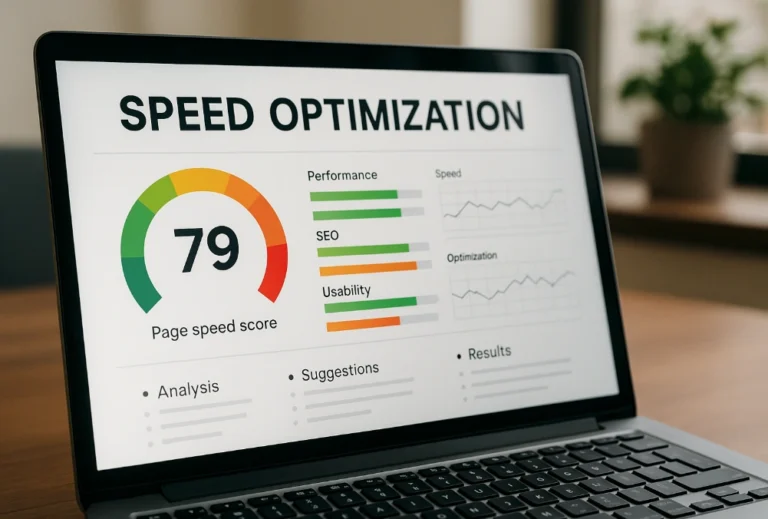Digital marketing has transformed the way businesses connect with customers and drive growth. Whether you’re a B2B or B2C company, mastering the art of digital marketing is crucial to your success. That’s why we’ve created this comprehensive guide to B2B digital marketing, which covers everything from defining the concept to identifying categories of B2B buyers, developing a successful strategy, planning your approach, and implementing proven tactics that work.
By the end of this guide, you’ll be equipped with the knowledge and tools you need to thrive in the digital age, including real-world examples of successful B2B marketing campaigns that have achieved tangible results.
What is B2B digital marketing?
B2B digital marketing involves leveraging the power of digital channels and tactics to showcase your products and services to other businesses. Unlike B2C marketing, which concentrates on individual consumers, B2B marketing hones in on the specific needs and interests of other businesses.
Why is digital marketing important for the B2B industry?
As the world becomes increasingly digital, B2B companies need to keep up with the times and embrace digital marketing. The rise of the internet and social media means that B2B buyers spend more time researching products and services online than ever. That’s why digital marketing has become crucial to any successful B2B marketing strategy.
What are the four categories of B2B Buyers?
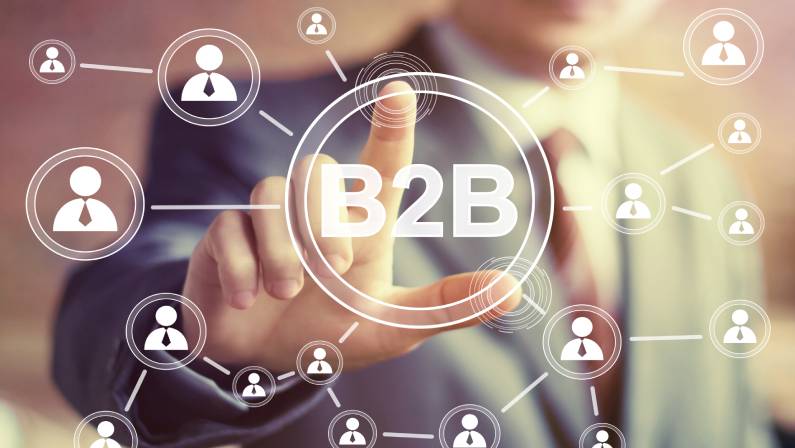
There are four categories of B2B buyers, each with unique characteristics and needs. Understanding these categories can help businesses tailor their marketing strategies to meet the needs of each group.
1. Producers
Producers are the backbone of the B2B industry. They create the products and services that other businesses rely on to grow and succeed. They may manufacture parts, provide raw materials, or create finished products. Producers typically have a long sales cycle and require a lot of education and support from suppliers.
2. Resellers
Resellers are a key group of B2B buyers that purchase products or services from producers and sell them to other businesses. They often differentiate themselves by adding value through additional services or unique packaging.
Compared to producers, resellers typically have a shorter sales cycle, making them an attractive target for businesses looking to boost revenue quickly.
3. Institutions
Institutions, such as healthcare providers or educational institutions, are businesses that offer services to other businesses. These customers tend to have longer sales cycles and require extensive education and support from suppliers.
4. Governments
Governments are a unique category of B2B buyers with their own procurement processes and regulations. From office supplies to military equipment, governments may purchase a wide range of products and services.
As a business owner, understanding the intricacies of selling to government agencies is crucial to winning contracts and driving revenue.
B2B vs B2C Digital Marketing
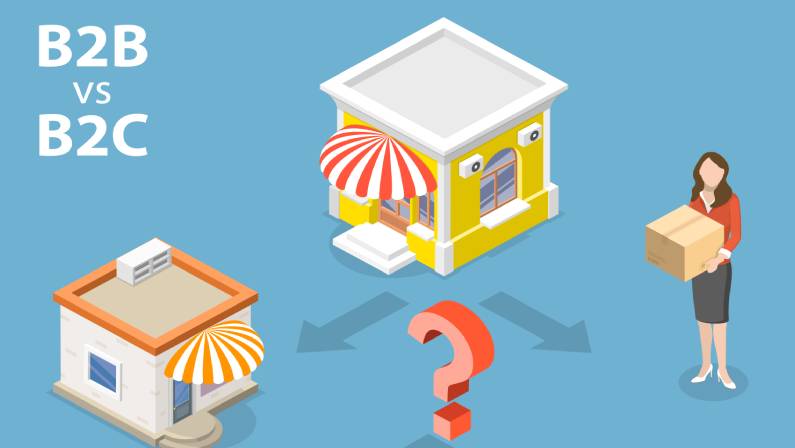
Digital marketing is a powerful tool for businesses looking to connect with their target audience and drive growth. But when it comes to B2B vs B2C marketing, there are some key differences to remember.
B2B marketing typically involves a longer sales cycle and building relationships with multiple stakeholders. This means that B2B campaigns need to focus on the needs and interests of the businesses they’re targeting, and establish trust and credibility over time.
On the other hand, B2C marketing is often more focused on emotional appeals and impulse purchases. B2C campaigns need to grab the attention of individual consumers quickly and create a sense of urgency to encourage them to purchase.
As a business owner, it’s important to understand the nuances of each type of marketing and develop a strategy tailored to your target audience. By doing so, you can create campaigns that resonate with your audience and drive more conversions.
Components of a Successful B2B Digital Marketing Strategy
To succeed in B2B digital marketing, businesses must have a clear strategy in place. Here are some key components of a successful B2B digital marketing strategy:
Creating a buyer persona
Creating a buyer persona is a crucial step in developing a successful B2B marketing strategy. By understanding the specific needs, pain points, and motivations of your target customers, you can create targeted campaigns that resonate with your audience and drive more conversions.
Understanding the buyer’s journey
The buyer’s journey refers to the stages that a customer goes through when making a purchasing decision, from awareness to consideration to decision. By understanding each stage of the buyer’s journey, you can create targeted campaigns that meet the unique needs and interests of your audience at each step.
Whether you’re looking to increase brand awareness, encourage consideration, or drive purchasing decisions, tailoring your marketing efforts to the buyer’s journey is essential for success.
Developing a content marketing plan
If you’re looking to build lasting relationships with your customers and establish yourself as an industry leader, content marketing is the way to go. By creating and sharing valuable content that informs, educates, and entertains your target audience, you can build trust and credibility over time.
But to make the most of your content marketing efforts, it’s important to develop a solid plan. This includes identifying your target audience, setting goals, and creating a content strategy that speaks directly to their needs and interests.
Optimizing your website for search engines
As a business owner, it’s essential to invest in SEO to ensure that your website is easily discoverable by your target audience. When you optimize your website for relevant keywords and create high-quality content for your audience, you can improve your rankings in search engines and generate more leads for your business.
This means that more potential customers will be able to find your website when they’re searching for products or services related to your industry.
Utilizing social media for B2B marketing
Social media has transformed the way businesses connect with their customers, and B2B marketing is no exception. By leveraging social media platforms, businesses can engage with their audience on a more personal level, build brand awareness, and generate leads.
How do you plan a B2B marketing strategy?

A successful B2B marketing strategy involves careful planning and execution. Here are some steps you can follow:
1. Segment your market, then focus on a target segment
To make your B2B marketing strategy truly effective, you need to start by segmenting your market based on specific characteristics like industry, company size, or geographic location. This will help you to identify your target audience and create campaigns that resonate with their unique needs and interests.
Once you have segmented your market and identified your target audience, it’s time to focus your efforts on developing a strategy to reach and engage with this group. This might involve creating content that speaks directly to their pain points, using social media to connect with potential customers, or launching a targeted email marketing campaign.
2. Create an ICP for each market segment
Developing an Ideal Customer Profile (ICP) for each market segment is crucial to understanding your target audience. By developing a detailed profile of your ideal customer, including demographic, firmographic, and psychographic data, you can tailor your marketing strategy to their unique needs and interests.
3. Perform a competitor analysis
A competitor analysis involves analyzing your competitors’ marketing strategies, target audiences, and unique selling propositions (USPs). By gaining a deep understanding of your competitors’ strengths and weaknesses, you can develop a marketing strategy that sets your business apart from the rest.
4. Write a USP for each target market
A USP or unique selling proposition should clearly communicate what makes your business unique and why customers should choose you over other options.
With a USP for each target market, you can tailor your message to the specific needs and interests of your audience. This helps you differentiate your business from competitors and establish a clear value proposition that resonates with potential customers.
5. Take your Prospects through the buyer’s journey
To turn prospects into loyal customers, businesses need to take them through the buyer’s journey. The journey consists of three stages: awareness, consideration, and decision, and each stage requires a different approach to meet the unique needs and concerns of your prospects.
Awareness Stage
At the awareness stage, prospects are just becoming familiar with your business and may not know their specific needs. To address this, you should create content that educates prospects and establishes your business as a thought leader in your industry.
Consideration Stage
As prospects move into the consideration stage, they begin to evaluate different solutions and compare them against each other. At this stage, building relationships through personalized communication and providing relevant content that addresses their specific concerns and pain points is essential.
Decision Stage
Finally, at the decision stage, prospects are ready to make a purchase decision. At this stage, your marketing strategy should provide targeted offers and incentives, encouraging prospects to take action and move forward with your business.
6. Identify channels and resources to use
Finally, identify the channels and resources that will be most effective in reaching and engaging with your target audience. This may include social media platforms, email marketing, search engine optimization (SEO), or pay-per-click (PPC) advertising.
Digital Marketing Strategies for B2B companies
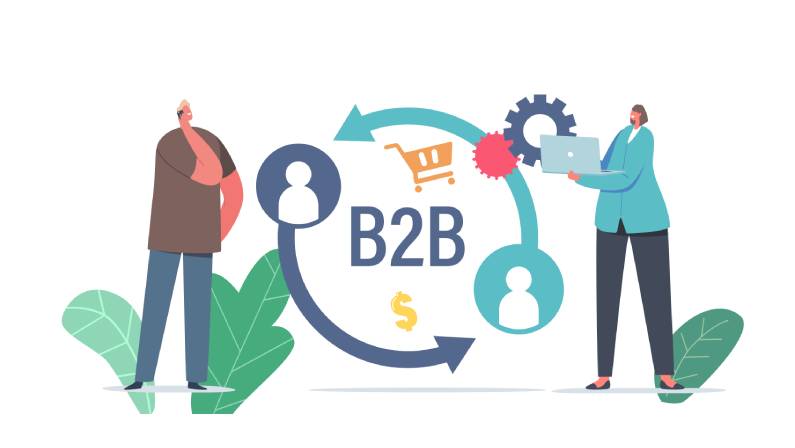
Once you have a plan in place, it’s time to execute your B2B digital marketing strategy. Here are some effective digital marketing strategies for B2B companies:
1. Specify your business’s positioning
To stand out in today’s crowded marketplace, businesses need to develop a clear and concise positioning statement. A positioning statement communicates what your business does and why it’s unique, helping you differentiate yourself from competitors and attract the right audience.
Start by thinking about what makes your business unique and why customers should choose you over other options. What are your core values, and how do they inform your business strategy? By answering these questions, you can develop a clear and concise statement that speaks directly to the needs and interests of your target audience.
2. Understand your target audience
To succeed in digital marketing, it’s essential to understand your target audience. Identify their pain points, needs, and interests, you can develop targeted marketing messages that resonate with them and drive more conversions.
To get started, conduct market research to gather information about your target audience. This may include surveys, focus groups, and other types of research that help you gain insights into their behaviors and preferences.
Once you’ve gathered this information, tailor your messaging to their unique needs and interests to create a powerful connection that drives more conversions and builds lasting relationships with customers.
3. Have a user-friendly B2B website
Your website is the face of your business in the digital world, so it’s essential to make a great first impression. To do this, you need to ensure that your website is user-friendly and visually appealing, providing a positive experience for visitors from the moment they arrive.
4. Help customers find you with search engine optimization (SEO)
SEO is a critical component of any digital marketing strategy. Optimize your website and content to rank higher in search engine results pages, making it easier for prospects to find you online. This means focusing on key factors like keyword research, on-page optimization, and link building to improve your website’s visibility and search rankings.
5. Offer valuable information and insights with content marketing
Creating valuable and informative content helps establish your business as a thought leader and builds trust with prospects. Develop a content marketing plan that addresses your target audience’s pain points and interests.
To get started, develop a content marketing plan focusing on delivering high-quality content that resonates with your target audience. This may include blog posts, videos, infographics, and other types of content that provide valuable insights and information.
6. Nurture your leads and strengthen customer relationships with email marketing
Email marketing is a powerful way to stay in touch with prospects and provide valuable information and insights that keep them engaged and interested.
By developing targeted email campaigns that address your audience’s unique needs and interests, you can build trust and establish lasting relationships with customers. This means focusing on key factors like personalization, segmentation, and content relevance to deliver messages that resonate with your audience.
7. Connect with Your Customers through Social Media Marketing
Platforms like LinkedIn, Twitter, and Facebook are powerful tools for establishing your business as a thought leader and building lasting relationships with customers. By sharing valuable content, engaging with followers, and providing insights that speak directly to your audience’s needs and interests, you can create a powerful connection that drives more conversions and grows your business.
8. Run Pay-per-click (PPC) Ads if Your Budget Allows
If you’re looking to drive more targeted traffic to your website and generate more qualified leads, pay-per-click (PPC) advertising may be the perfect solution for your business.
With PPC ads, you are able to target specific keywords and demographics, ensuring that your ads are shown to the right audience at the right time. This can lead to a higher click-through rate and more qualified leads, ultimately driving more conversions and growing your business.
PPC ads are also highly measurable, allowing you to track your ROI and adjust your strategy as needed.
Applying all these strategies may take a lot of work for any business, so many B2B businesses partner with a trusted digital marketing agency to handle all the B2B digital marketing work for them so they can focus on producing quality services or products for their customers.
What are the benefits of B2B digital marketing?

B2B digital marketing has many benefits for businesses looking to grow their brand and increase their revenue. Some of these benefits include:
B2B digital marketing is measurable.
With digital marketing, you can measure the success of your campaigns accurately and adjust your strategy as needed. Tools like Google Analytics allow you to track website traffic, monitor social media engagement, and analyze the performance of your PPC ads.This data allows you to make informed decisions about your marketing strategy and adjust your efforts to maximize your ROI.
B2B digital marketing helps you rank higher in search results.
With the right approach, SEO can be a highly effective and cost-efficient way to grow your business and achieve your marketing goals.
Search engine optimization (SEO) is a critical aspect of digital marketing. By optimizing your website and content for search engines, you can improve your search rankings and increase your visibility to potential customers. This can lead to more traffic to your website and more qualified leads.
B2B digital marketing has a high return-on-investment (ROI).
Perhaps the most significant benefit of B2B digital marketing is the high ROI it can provide. Because digital marketing is measurable and highly targeted, you can ensure that you’re getting the most out of your marketing budget.
From email marketing and content creation to social media and PPC ads, digital marketing offers a variety of tactics that can help you grow your business and drive more conversions over time.
B2B Marketing Examples
Curious to see how other B2B companies have used digital marketing to achieve success? Here are some examples of B2B companies that have successfully leveraged digital marketing strategies to grow their businesses:
MailChimp and B2B Website Design
As a top email marketing company, MailChimp created a website that’s both user-friendly and optimized for search engines, which made it easy for potential customers to find and engage with their business. By prioritizing a clear and straightforward website design, as well as SEO best practices, MailChimp has been able to attract more qualified leads and grow their business over time.
TravelPerk and B2B SEO
TravelPerk, a leading business travel management company, has found success by leveraging strategic SEO tactics to attract more qualified leads to their website. With high-quality content that speaks directly to their customers’ pain points and needs, TravelPerk has been able to rank high in search engine results pages for relevant keywords. This has led to increased website traffic and more lead generation opportunities.
By prioritizing B2B SEO best practices, TravelPerk has been able to establish themselves as thought leaders in the industry and drive growth over time.
Shopify and B2B Content Marketing
Shopify, an e-commerce platform, uses content marketing to educate potential customers about their product and position themselves as a thought leader in their industry. They’ve created a robust blog that covers a wide range of topics related to e-commerce, and they use social media to share their content with their audience.
By focusing on providing valuable and informative content, Shopify has been able to attract more qualified leads and drive growth over time.
Adobe and Social Media
Adobe is a prime example of a B2B company that has effectively used social media channels to engage with its customers. Through various social media platforms such as Twitter, LinkedIn, Facebook, and Instagram, Adobe has been able to create engaging and informative content, including videos, webinars, blog posts, and infographics. Their content is tailored to their target audience, which has helped them attract and retain more customers.
One of Adobe’s most effective social media campaigns was its #AdobeSummit hashtag campaign. The campaign aimed to promote Adobe’s annual conference by encouraging attendees to share their experiences on social media using the hashtag #AdobeSummit. Adobe leveraged social media influencers and employees to amplify the campaign’s reach, and the result was a huge success, with millions of social media impressions and engagement.
Blackbaud, Blackbaud Champions, and B2B Referral Program
Blackbaud is a software company that provides solutions for nonprofits and social impact organizations. One of their successful B2B marketing strategies is the Blackbaud Champions program, which is a referral program that rewards customers for referring new clients to Blackbaud.
This program encourages customers to spread the word about Blackbaud’s services, resulting in increased brand awareness and new business leads.The program works by giving Blackbaud customers exclusive access to training, resources, and networking opportunities.
In exchange, customers are expected to refer new clients to Blackbaud. The program has been a huge success, with many customers participating and generating new leads for the company.
Using Digital Marketing To Stand Out In A Crowded Market
In today’s fast-paced business world, having a strong online presence is crucial for attracting the right audience and staying ahead of the competition. Digital marketing is a powerful tool that can help businesses of all sizes achieve their goals and reach their ideal customers.
With various tactics, including SEO, social media, content marketing, and PPC advertising, you can get your message in front of the people who matter most.
But where do you begin?
For the business owners who find the path of digital marketing overwhelming, this is where a b2b digital marketing agency expert like LeadOrigin comes in. Our team of experts can help you develop a custom strategy and a variety of B2B digital marketing services tailored to your unique needs and goals.
By leveraging our experience and knowledge, you can attract the right audience, generate more leads, and grow your business in today’s competitive online landscape. Don’t let your competitors get ahead — contact LeadOrigin today and let us help you take your digital marketing efforts to the next level!
By embracing B2B digital marketing, businesses can attract attention from the right audience and compete alongside industry giants.
